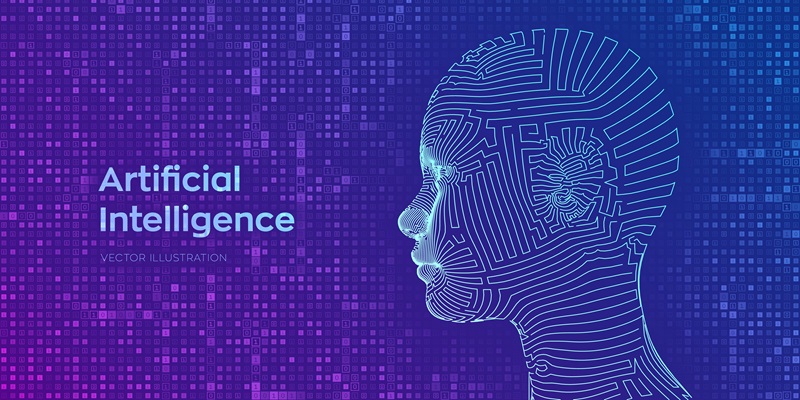In a bold move aimed at revolutionizing workplace productivity, ServiceNow has strategically integrated AI agents to perform routine tasks, thereby alleviating employees from mundane responsibilities and allowing them to focus on more complex issues. ServiceNow’s innovative approach emphasizes the seamless integration of AI agents in a way that makes them almost ‘invisible’ to employees, reducing the learning curve and intimidation factor associated with new technology. Dorit Zilbershot, vice president of AI and Innovation at ServiceNow, underscores that employees should be able to complete their tasks without needing to understand the underlying AI mechanisms, as these agents work autonomously in the background. This user-centered strategy aims to make AI non-intrusive, thereby enhancing productivity without requiring specialized knowledge from employees.
Transformative Power of Now Assist
One of the cornerstone products introduced by ServiceNow to leverage AI technology is Now Assist, which has quickly become the fastest-growing product in the company’s portfolio. Now Assist features a library of AI agents designed to automate workflows across various business functions, including sales and product management. Zilbershot strongly emphasizes that these AI agents are not designed to replace human workers but are intended to alleviate repetitive and monotonous tasks. This allows employees to dedicate their skills and attention to more complex and challenging responsibilities, thereby elevating overall workplace productivity.
The CEO of ServiceNow, Bill McDermott, has elaborated extensively on the company’s commitment to embedding AI within every product offering. He highlights the robust performance and growing implementation of generative AI applications within ServiceNow’s suite of tools. This marks a significant evolutionary step in the realm of productivity tools, setting a new benchmark for how AI can be used to drive operational efficiencies. The focus on generative AI capabilities ensures that employees can rely on these technologies for enhanced problem-solving and decision-making, rather than just task automation.
Distinguishing AI Agents from AI Assistants
A compelling aspect of ServiceNow’s strategy is the clear differentiation it makes between AI agents and AI assistants. Dorit Zilbershot is keen to clarify that these terms should not be used interchangeably. According to her, calling AI agents ‘assistants’ misguides users into thinking that interacting with these agents requires learning a new set of prompts or commands. Instead, ServiceNow’s AI agents are designed to operate autonomously, without needing user intervention to guide them. For the efficient deployment of these technologies, orchestrator agents play a crucial role in managing multiple AI agents, a feature integrated within the Now Assist platform.
This distinction and the capability of orchestrator agents ensure that the AI ecosystem is not only efficient but also scalable. Employees can rely on this robust system to handle various tasks without worrying about the operational complexity of managing multiple AI entities. This strategic clarity aims to eliminate any potential misconceptions about AI implementation, thereby smoothing the adoption process across different organizational levels. Ultimately, this ensures that employees can focus on their core responsibilities, while AI agents handle the background work seamlessly.
Strategic Partnerships to Expand AI Capabilities
In a move to solidify its AI ecosystem and expand capabilities, ServiceNow has entered into a collaboration with Nvidia. This partnership leverages Nvidia’s NIM Agent Blueprint, which will allow ServiceNow to develop specialized AI agents at scale. The first of these solutions, a Vulnerability Analysis for Container Security AI Agent, is slated for launch in 2025. This initiative represents just the beginning of multiple collaborations aimed at enhancing ServiceNow’s agent platform, promising a future where off-the-shelf AI solutions can be rapidly deployed to meet specific organizational needs.
The collaboration with Nvidia exemplifies ServiceNow’s commitment to not just innovating internally but also leveraging external expertise to expand its AI capabilities. Such strategic partnerships are essential for staying ahead in the fast-evolving AI landscape, as they enable ServiceNow to offer cutting-edge solutions that meet the dynamic needs of modern enterprises. By focusing on specialized AI agents, ServiceNow aims to address niche areas that require targeted automation, thereby providing comprehensive solutions that drive productivity across the board.
Enhancing Productivity Through Discreet Integration
A key aspect of ServiceNow’s strategy is its clear distinction between AI agents and AI assistants. Dorit Zilbershot emphasizes that these terms shouldn’t be used interchangeably. She believes calling AI agents ‘assistants’ misleads users into thinking they need to learn new prompts or commands for interaction. In contrast, ServiceNow’s AI agents operate autonomously, requiring no user intervention to guide them. Orchestrator agents are vital for managing multiple AI agents efficiently, a capability integrated within the Now Assist platform.
This clear differentiation, along with the role of orchestrator agents, ensures that the AI ecosystem is both effective and scalable. Employees can depend on this powerful system to handle various tasks without the hassle of managing multiple AI entities. By providing this strategic clarity, ServiceNow aims to eliminate misunderstandings about AI implementation, facilitating a smooth adoption process across different organizational levels. This allows employees to concentrate on their core duties while AI agents manage background work effortlessly, enhancing productivity and operational efficiency.

